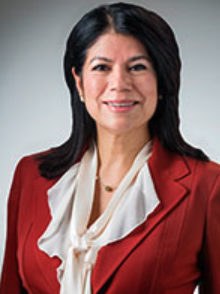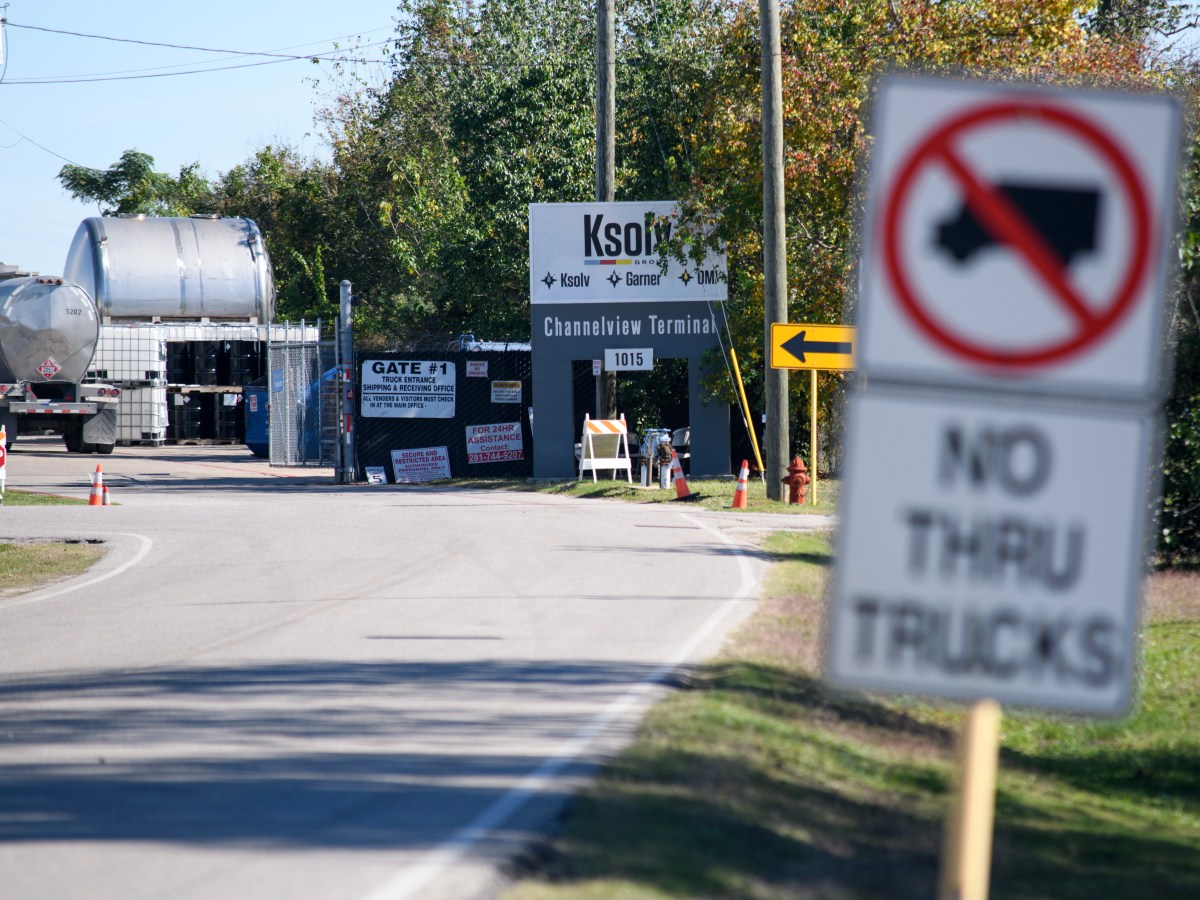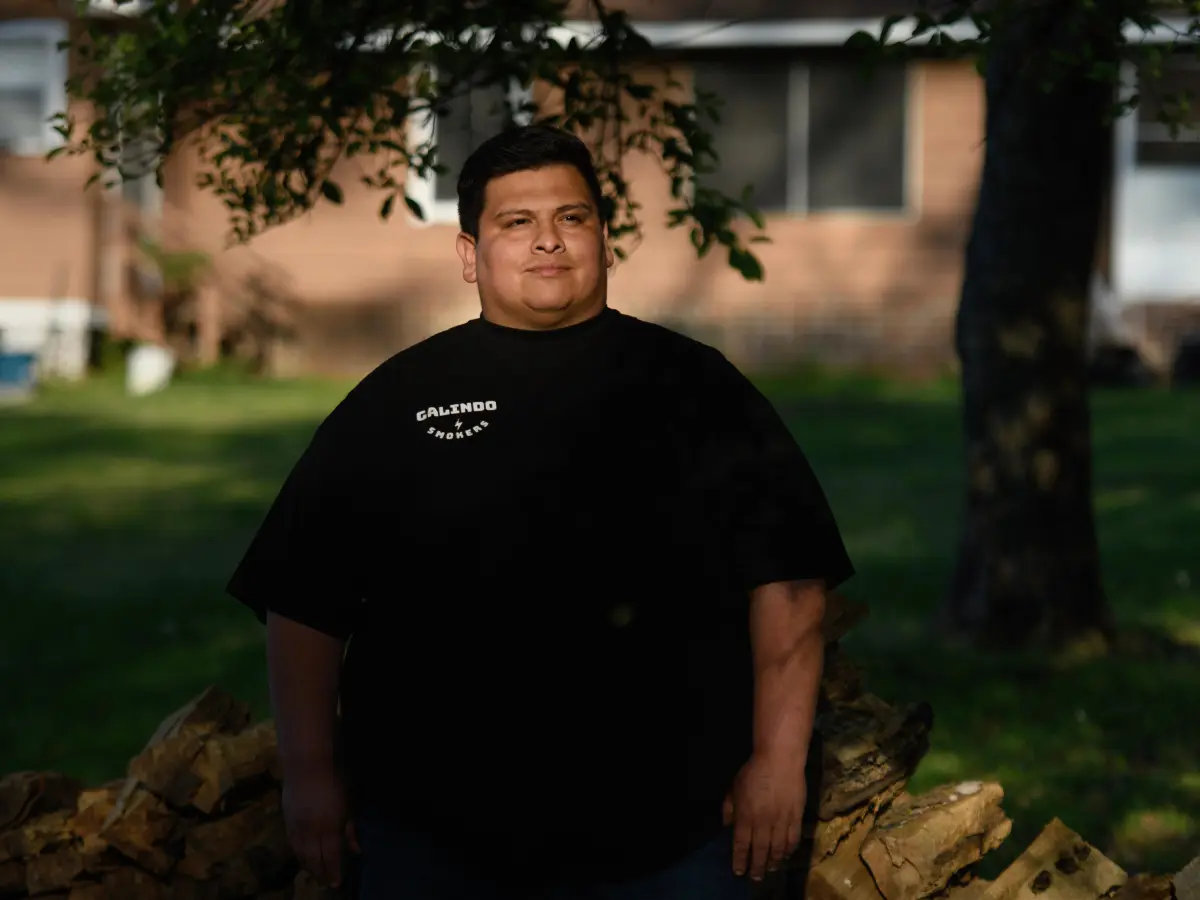Texas State Sen. Carol Alvarado says that Public Health Watch’s recent investigation into chronic benzene pollution in the unincorporated community of Channelview will be the blueprint for legislation she plans to introduce when Texas lawmakers convene in January.
“To me, it’s very simple. There needs to be more accountability and transparency. People should be held accountable if they are posing a public health crisis to their neighbors,” Alvarado, a Democrat whose district includes Channelview, said in an interview. “Public Health Watch’s findings and the work it has done has helped us to put this on the forefront of our legislative agenda.”
The investigation revealed that the Texas Commission on Environmental Quality, or TCEQ, had known since 2005 that Channelview residents were routinely breathing dangerous levels of benzene, a chemical linked to leukemia and other blood cancers. But the state agency never told them about the health risks they faced and did little to punish the facility it knew was releasing large amounts of benzene. Instead, the TCEQ allowed K-Solv, a chemical distribution company located in a residential part of Channelview, to repeatedly expand its operations and increase the amount of chemicals it could legally release into the air.

Alvarado grew up about 10 miles from Channelview, in the heavily industrialized Houston community of Manchester. Her comments came four months after she vowed to take action following the release of the Public Health Watch investigation in December 2023. Although Alvarado didn’t offer specific details, she said strengthening the TCEQ and increasing community engagement will be the foundations of her bill. Her top priorities include mandating “comprehensive and continuous” air monitoring, punishing serial polluters for breaking Texas environmental law and tightening emission limits for benzene and other volatile organic compounds.
“This is a no-brainer to me. You have a company that’s been bad, yet you have a set of regulations that allows them to continue to be bad actors while continuing to get their permits,” Alvarado said. “Bad actors should not be rewarded. They must face consequences.”
Tracing the Records
Our team of reporters spent more than a year and a half gathering and analyzing never-before-seen state documents. To organize our work, we created a timeline tracking the TCEQ’s failure to address K-Solv’s frequent violations and the facility’s repeated expansions despite its track record. Find the records here.
Adrian Shelley, director of the Texas office of Public Citizen — a national nonprofit that focuses on curbing corporate power — warned that reforming the TCEQ is an “uphill battle” because of its long-standing reputation as an agency that “services the industries it’s supposed to regulate.”
“It’s got enforcement mechanisms. It’s got permitting authority. It’s got laws and regulations that would allow it to prevent pollution in the state beyond the extent that it currently does,” Shelley said. “It’s just choosing not to exercise that authority because our politicians — particularly Gov. Greg Abbott — have, through their appointments to the agency’s top leadership positions, shown their priorities are not protecting public health. They’re keeping business in business.”
Shelley said, however, that there are tactics Alvarado could use to bolster the TCEQ in the upcoming session.
For one, her legislation could direct the agency to strengthen its public health guidelines for exposure to chemicals — an issue highlighted in Public Health Watch’s investigation. Under Michael Honeycutt, who led the TCEQ’s toxicology division for 20 years, the agency significantly weakened its guidelines meant to “protect human health and welfare” for dozens of chemicals, including benzene. Today, the TCEQ says the public is protected if the air outside industrial facilities contains an average of no more than 180 parts of benzene per billion parts of air (180 ppb) over a one-hour period. That’s 22 times higher than the 8 ppb guideline California uses.
Shelley said Alvarado could also revive the TCEQ’s Air Pollutant Watch List, a program created more than 25 years ago to address the state’s most polluted areas. Although the TCEQ champions the program, no areas have been added to the watch list since 2007. Channelview’s Jacintoport neighborhood is part of a region that was added in 2002, but it was removed in 2010, even though U.S. Environmental Protection Agency data shows that the area’s cancer risk from airborne chemicals is two times higher than the rest of Texas.

While passing any TCEQ-related legislation will be a challenge in the industry-friendly Texas Legislature, Alvarado has succeeded before. In 2021, she pushed through a new chemical tank law after a massive fire consumed an International Terminals Company storage facility. This time, she plans to make Public Health Watch’s investigation a core part of her argument to her fellow lawmakers.
“We will highlight that this took place and look at how many investigations K-Solv had, how many violations they had,” she said. “By highlighting this, other senators may discover that they’ve had issues as well in their districts.”

News of Alvarado’s efforts was encouraging to Randy Lopez, whose family lived across the street from K-Solv for nearly 20 years. Both of Lopez’s parents died of health problems associated with heavy exposure to industrial chemicals. His older brother, Joel, has been diagnosed with myelodysplasia, a blood cancer that can develop into leukemia.
“Oh, my God, that is freaking amazing. It gives me great hope that there’s somebody who’s willing to champion this,” Lopez said. “We shouldn’t let people get away with what [K-Solv and the TCEQ] has done. Somebody needs to be held accountable.”
Public Health Watch reporter Salina Arredondo contributed to this story.
Channelview Documents
Click on an icon to see the document.




